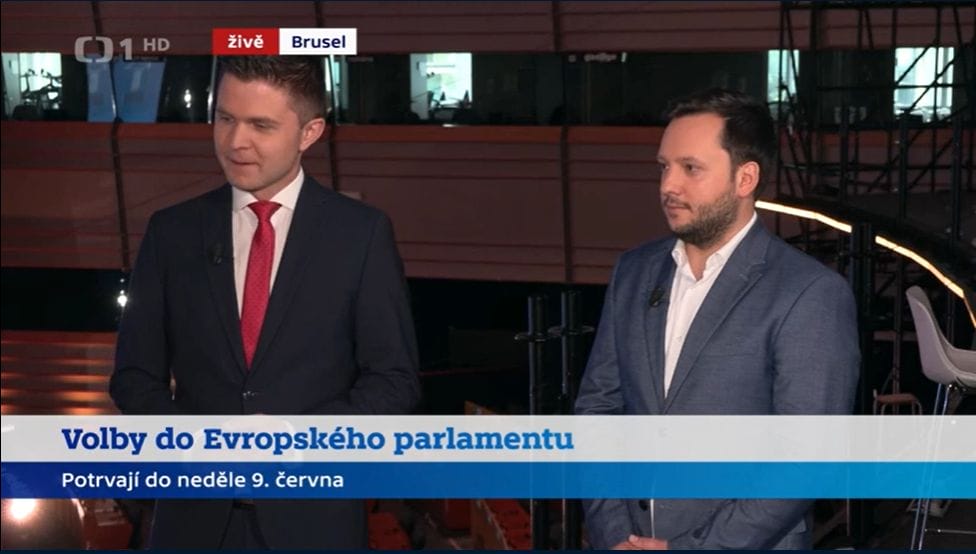
ČT24 | The European Union is in a state of unity, despite differences among some member countries
More info 7. 6. 2024
7. 6. 2024
The European Parliament elections held from June 6th till 9th not only introduced a new lineup of MEPs but also brought significant changes in the distribution of seats among various countries. The European Union is gearing up for new challenges with its new leadership, and Hungary will assume the presidency in July. How will the European institutions transform, and what priorities will dominate over the next five years? Žiga Faktor, Deputy Director and Head of the Brussels Office of EUROPEUM Institute, commented for Czech Television.
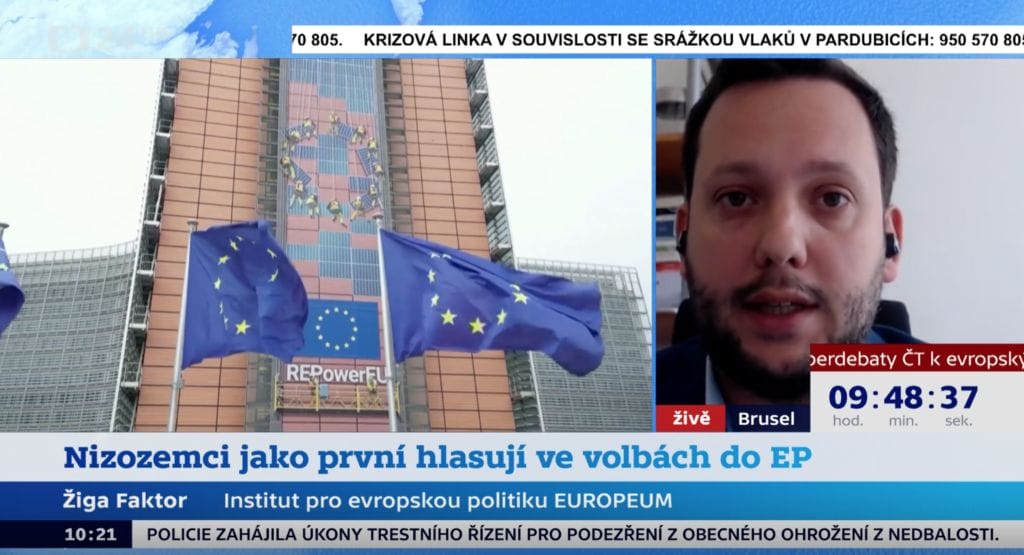
ČT24 | European Parliament elections begin
More info 6. 6. 2024
6. 6. 2024
Do the elections across European countries have a common theme? If far-right parties succeed, can they unite? How can the problem of long-term low voter turnout in European elections be explained? Is this trend only in Central Europe? Can candidates for the European Parliament really deliver on what they promise? What happens immediately after the elections? Žiga Faktor, Deputy Director and Head of the Brussels Office of EUROPEUM Institute, answered these and other questions.
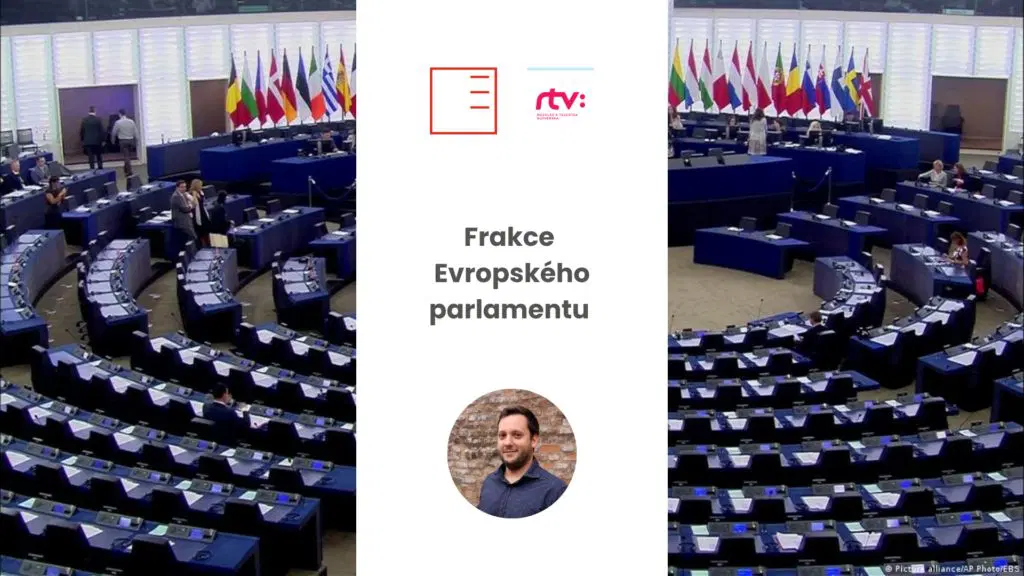
RTVS | Political Groups in the European Parliament
More info 5. 6. 2024
5. 6. 2024
The European People's Party (EPP) in the European elections may face competition from political groups such as the European Conservatives and Reformists (ECR) and the far-right Identity and Democracy (ID). After the elections, negotiations on the structure of the political groups and the future President of the European Commission will commence behind closed doors. Žiga Faktor, Deputy Director and Head of the Brussels Office of EUROPEUM Institute, comments for Slovak radio RTVS.

ČTK | Far-right parties will get stronger after the European elections, but can they unite?
More info 5. 6. 2024
5. 6. 2024
Could the far-right parties in the European Parliament win more votes than the traditionally largest EPP faction, as some polls suggest? And what would this mean for Ursula von der Leyen's chances of being re-elected as head of the European Commission? Žiga Faktor, deputy director of EUROPEUM Institute and head of its Brussels office, commented for ČTK.
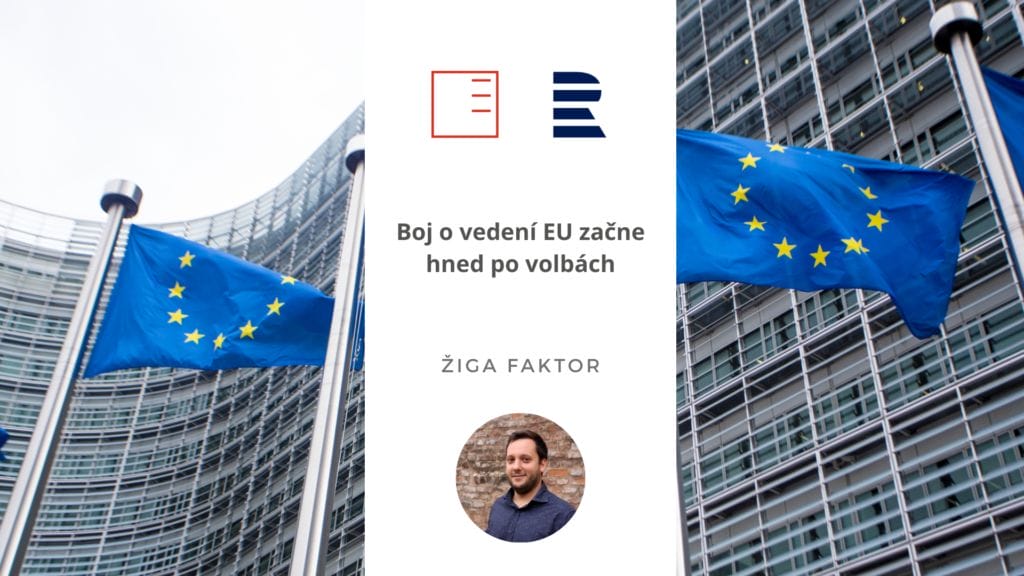
Czech radio | The battle for EU leadership will start after the elections
More info 3. 6. 2024
3. 6. 2024
The elections are not the end of the fight for the very leadership of the European Union. The coming weeks and months will decide the new leadership of the European Commission, the European Council, and the European Parliament. What will follow? Deputy Director and Head of the Brussels Office of EUROPEUM Institute, Žiga Faktor, answered questions for Czech Radio stations Radiožurnál and Plus.
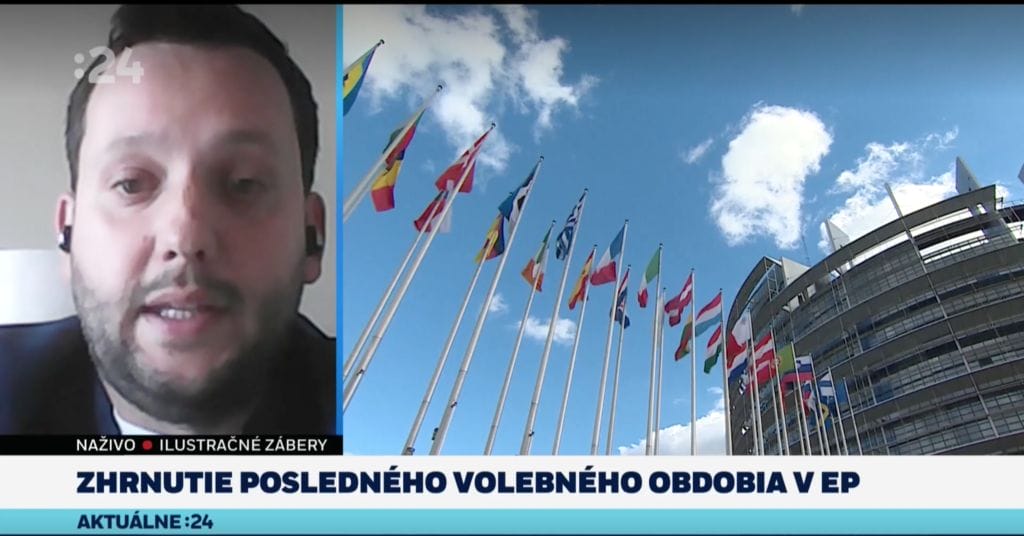
RTVS | The Last Parliamentary Term in the European Parliament
More info 2. 6. 2024
2. 6. 2024
What was the last parliamentary term like in the European Parliament? How did it manage two crises – the war in Ukraine and COVID-19? And how can the aid to Ukraine be assessed? Žiga Faktor, Deputy Director and Head of the Brussels Office of EUROPEUM Institute, answers these and other questions in an interview for Slovak television RTVS.
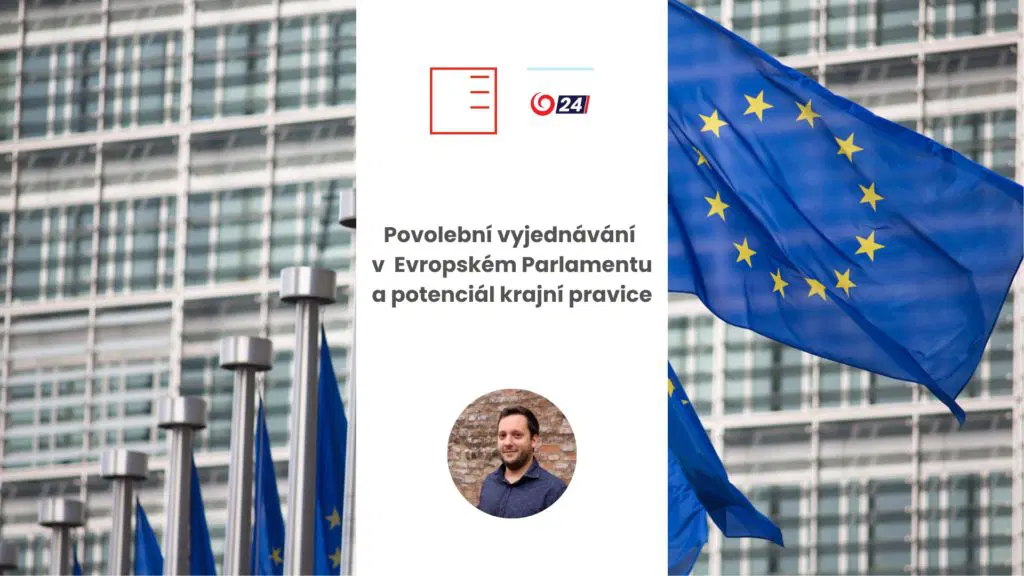
JOJ24 | Post-election negotiations within the European Parliament and the potential of the far right
More info 30. 5. 2024
30. 5. 2024
The far right is often disunited, as it lacks electoral discipline and prioritizes its own interests of national politics over its political group. In an interview for the Slovak television JOJ24, Žiga Faktor, Deputy Director and Head of the Brussels Office of EUROPEUM Institute, describes the role European Conservatives and Reformists and the far right from the Identity and Democracy Group could play in coalition building.
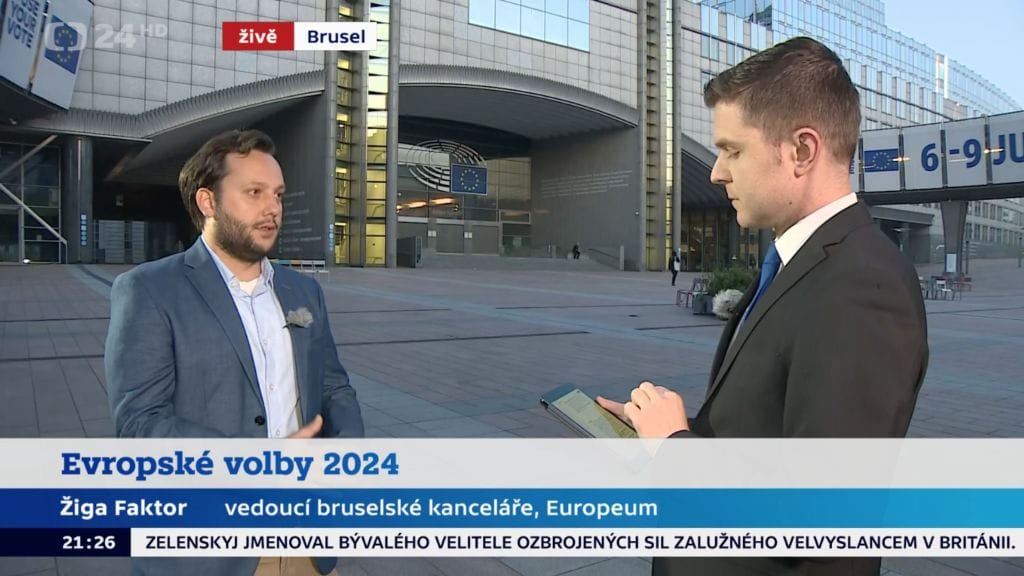
ČT24 | The rise of the far-right in the EU elections
More info 10. 5. 2024
10. 5. 2024
What are the reasons for the rise of the far-right in the upcoming European elections? Can we say that the far-right still holds anti-European views? What would the agenda of the European Parliament look like if the far-right gained more support? How likely is it that the European People's Party and Liberals would cooperate with the Conservatives? Žiga Faktor, deputy director and head of EUROPEUM Institute's Brussels office, provided live answers on the program "Předvolební Evropa" on ČT24.
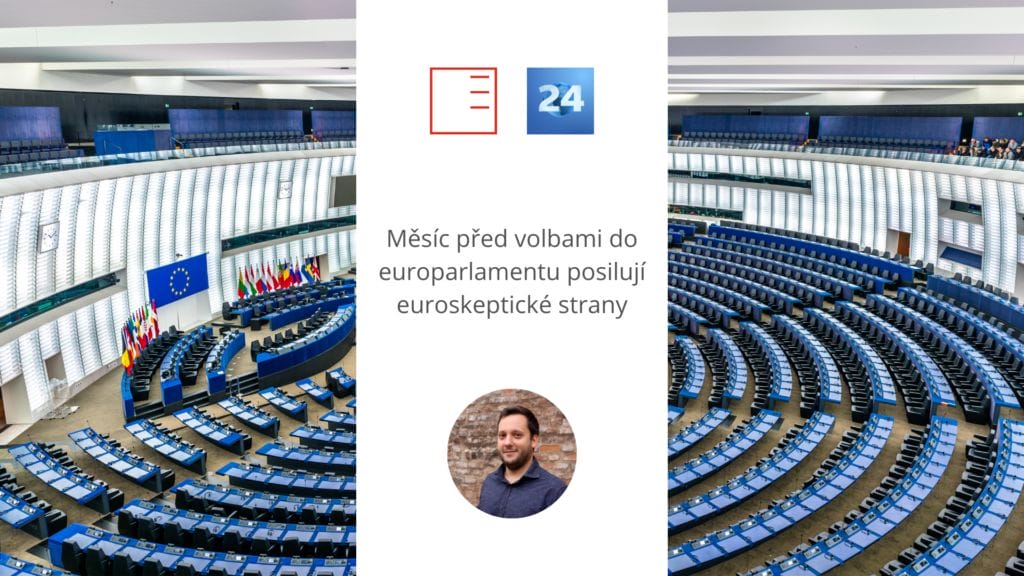
ČT24 | Euroskeptic parties strengthen a month before the European Parliament elections
More info 9. 5. 2024
9. 5. 2024
The European elections are about a month away. Czechs will vote for 21 of the 720 MEPs. This will be the first election since Brexit, the Covid-19 pandemic or the start of the Russian invasion of Ukraine. Turnout is expected to be higher than in the last elections five years ago, with right-wing and Eurosceptic parties strengthening. Žiga Faktor, deputy director and head of EUROPEUM Institute's Brussels office, described the possible reasons for daily broadcast of Czech TV.
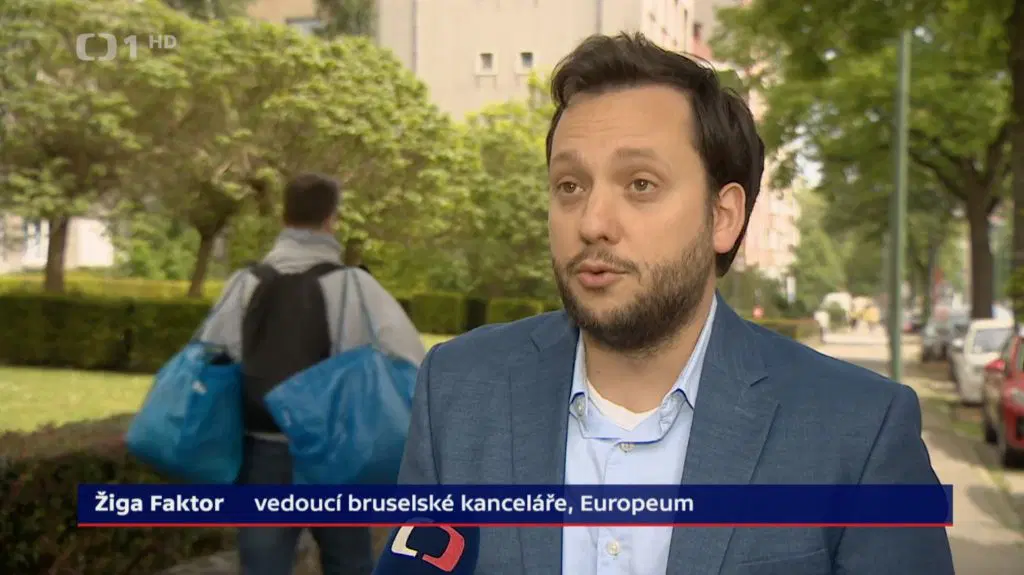
Události | Why is Euroskepticism and the far-right rising in EU elections?
More info 9. 5. 2024
9. 5. 2024
In the forthcoming European elections, projections suggest that the European People's Party and the Socialists will likely hold their ground. However, a competitive scenario arises for the third spot as liberals confront rising of Eurosceptic and far-right parties. What drives voter behavior towards these political parties? Žiga Faktor, deputy director and head of EUROPEUM Institute's Brussels office, answered for main evening broadcast Události at Česká televize.
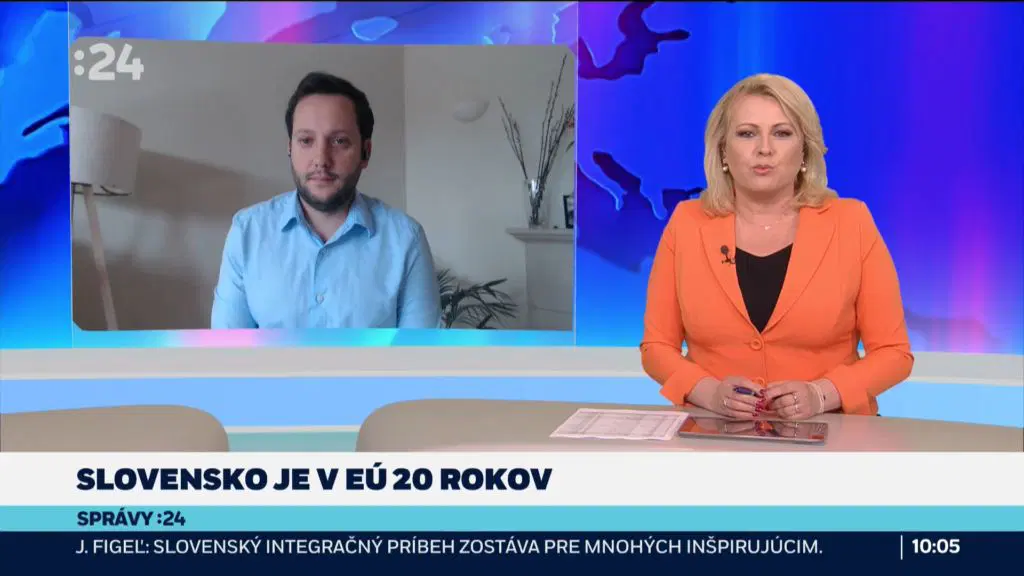
RTVS | Slovakia has been in the EU for 20 years
More info 1. 5. 2024
1. 5. 2024
Slovakia joined the European Union 20 years ago in its biggest enlargement to date. Among the main benefits of this move is an increase in the economy, up to 80%. Žiga Faktor, deputy director and head of EUROPEUM Institute's Brussels office, described the future direction of the Union.
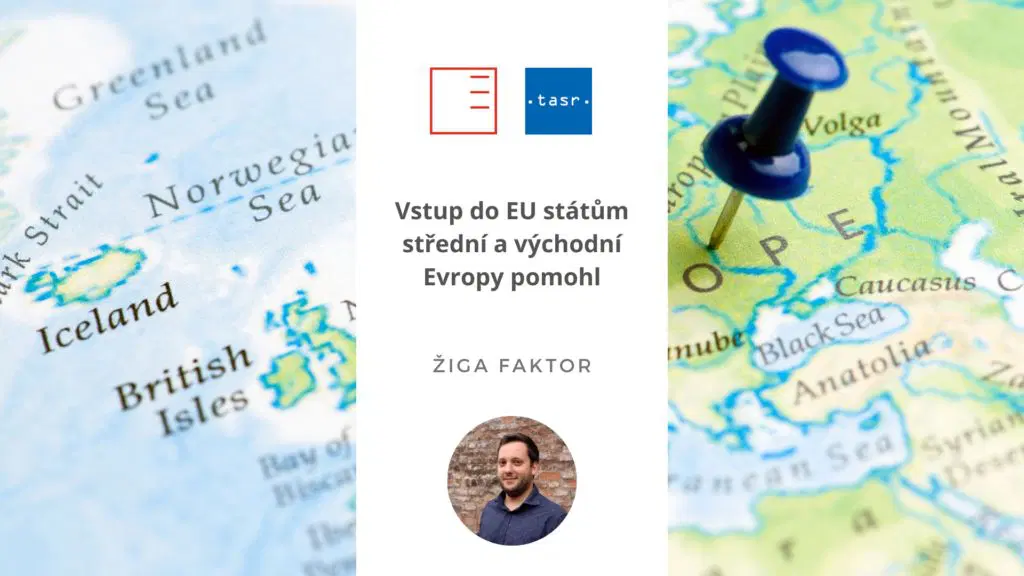
TASR | EU accession helped Central and Eastern European countries
More info 30. 4. 2024
30. 4. 2024
In 2004, a total of ten new countries joined the European Union, the largest enlargement in terms of population and number of countries. EU accession has helped the countries of Central and Eastern Europe, especially in terms of economic growth and political stabilisation. Žiga Faktor, Deputy Director of EUROPEUM Institute and Head of the Brussels Office, commented on this topic.